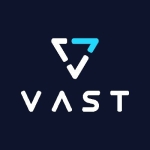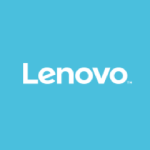What is our primary use case?
We use it for typical data center workloads: Exchange, file shares, and SQL.
How has it helped my organization?
We have a big problem in our organization where I can't get the application engineers to give me performance requirements. Now, with the SSDs, I don't need to worry about that anymore. All of our applications are high. Our test applications perform at a higher level now.
It has improved performance of our enterprise applications, data analytics, and VMs because we have a higher IO from the disk now. We run a lot of write-intensive VMs. For sure the solution helps out.
Our total cost of ownership has decreased because of the nature of the SSDs, their mean time to failure is much higher. They don't fail as often and that's going to reduce it. And because we upgraded to the All Flash and the bigger SSD, we reduced our footprint. I increased my capacity 500 percent and reduced my footprint in the data center by 95 percent.
What is most valuable?
The most valuable features are
- the IO performance that we get
- the cluster part
- the increased workload and performance with the SSDs.
And the CLI portion of ONTAP, in general, is much easier to use.
What needs improvement?
It's a little behind on security. It's starting to get into multi-factor authentication, they just started to introduce it but not for all products. In my area, we are really big on security, using smart-card authentication. Multi-factor authentication is a big thing for us, being on the federal government side of things. We need all the products to have the ability to do smart-card authentication. That's the biggest one. That's the drawback of this solution. But otherwise, it's getting there. It's starting to catch up.
What do I think about the stability of the solution?
It has been very stable so far. It's about a year old, we haven't been using it for long, but so far it has stood up very well.
What do I think about the scalability of the solution?
We haven't needed to scale it yet. We probably won't. But obviously, because we are in a multi-node cluster environment, with the switches we can scale out very easily if we need to.
How are customer service and technical support?
I mostly interact with my sales engineer who is very sharp. The few times that I've had to interact with technical support, it has been very good.
Which solution did I use previously and why did I switch?
The gear we were on was about ten years old. We always buy behind the technology curve. I noticed that spinning disk was going away and that the industry moving towards SSDs, so I wanted us to try to get ahead of the curve a little bit, to give us some more horsepower to do some more initiatives that we want to get done in the future.
How was the initial setup?
It was very straightforward. There are setup tools so if you're not very familiar with NetApp, they walk you through the process step by step: How to configure all the interfaces and the SVMs, etc. I'm more experienced with the command lines, so I deployed it that way. But it's very receptive to PowerShell scripting, so it's easy to use.
What about the implementation team?
We used an integrator, reseller, and consultant for the deployment. Resellers are resellers. I don't have a good or bad opinion of them. As for the integrators we had, I'd rather do it myself quite honestly. But it was okay.
Which other solutions did I evaluate?
Because we're federal government, we really can't choose. We've had NetApp for years. I did evaluate a lot of other products. Honestly, at the end of the day, storage is storage and disks are disks; it's all the bells and whistles on the front. Other solutions could probably have accomplished the same task. Ultimately, it comes down to dollars and cents, but I'm not really involved in that side of it. I'm sure they chose NetApp because of the cost.
What other advice do I have?
Know your workload, know your customer. Know what your requirements are, know what your future requirements are. Determine what's important to you. Think about the administrators, if you're not the administrator; I'm not, I just engineer it. Think about them and how they will use it. Think about the future, where you think your business will grow.
When it comes to setting up and provisioning applications using the product, it depends on what you're doing. But I I can have an Exchange server up and running in about 30 minutes.
At the moment the solution is not having any effect on IT's ability to support new business initiatives. I got it to support things like ADI and solutions like that. So hopefully, going forward, it will play a role in that. We have not connected the solution to public clouds. We do plan to in the future.
I rate the solution an eight out of ten because there's room to improve. There's always room to grow. The security side of it: They have a large government customer base but it seems like they really don't pay attention to that side of things. There are a lot of security things, a lot of customers can't send their stuff offsite, and I'm one of them. So coming up with better ways to satisfy that part would be great.
Disclosure: I am a real user, and this review is based on my own experience and opinions.












